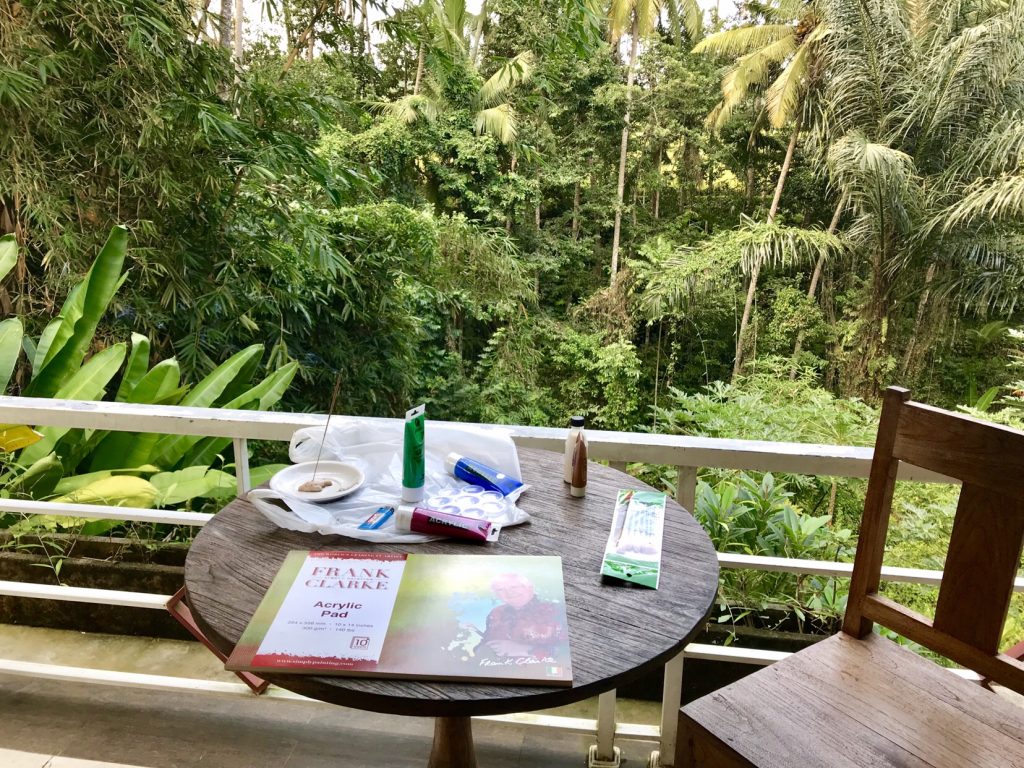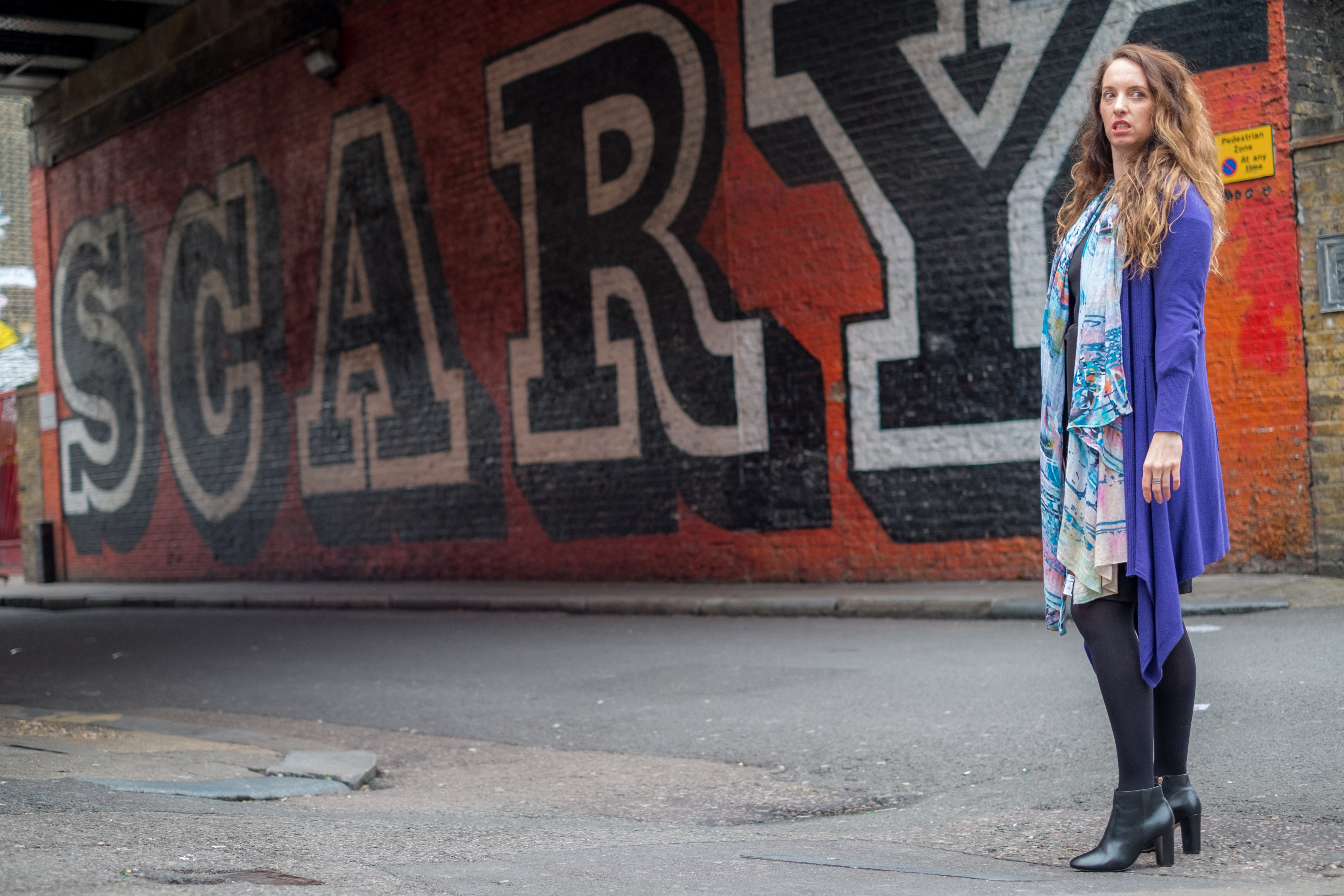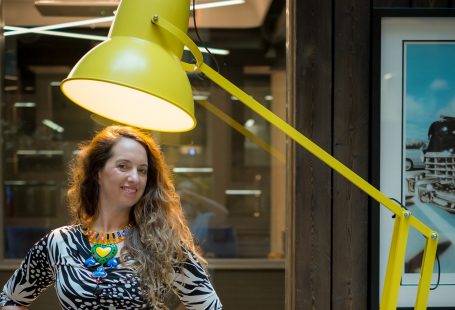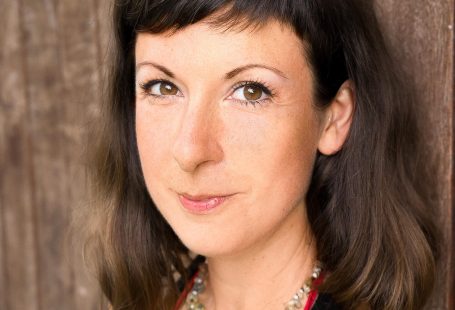I’ve just finished a 2-month solo DIY writing retreat in Bali. It’s part of a self-created and directed creative sabbatical that I’m doing this year. Many people use a sabbatical or a break from work to go travelling around the world, but I knew personally that is not what I wanted to do. I wanted to use the time to learn how to be more creative, pick up new skills and challenge myself. I know that I could not do that by travelling around.
If you are considering taking the time to create a DIY writing retreat, because you have a specific writing goal in mind, you are looking to take a sabbatical like I’m doing or you think it’s a fantastic alternative to a beach holiday, read on for my tips and experience and the things I learned from doing a solo DIY writing retreat.
Why did I decide to do a writing retreat?
Think about why you want to do a retreat before you decide to create one. It may sound very romantic to be in a new location and to be able to write all day, but I think you need to be clear about your intention before you start booking your flights.
A couple of years ago I discovered that I really liked writing, albeit business writing. I found it really relaxing and somehow found that the words would just come to me. I would get ideas constantly, but never really had the time to write them all down, which was such a shame. I wrote articles sporadically for Linkedin, but most of what I did was storytelling in the posts I wrote. This became successful for me workwise and after a while and several really positive comments from successful business writers, I realised that I may have a hidden talent that I could work on perfecting.
I’d also had this idea for a blog also a few years ago, but so many things got in my way (mainly myself), and it did not get born till November of last year. As time went on and I was still working sometimes 7 days a week running my company that launched products into retail I was still not having the time to write. It was very frustrating, especially since I knew that I wanted to be writing all day and not pitching products all day.
Writing, which I had not given any thought to a couple of years ago, suddenly became what I wanted to do all the time. To cut a long story short, after I decided to take a creative sabbatical, I knew that I wanted to spend a lot of time writing with no distractions and so my idea of creating a DIY writing retreat was born.
What is a DIY writing retreat?
DIY standing for Do It Yourself means just that. You decide where you will do it, be it at home, nearby or a far-flung destination like I have in Bali. You decided to structure and organise your days, what you will work on, what your goals are and what you will eat for lunch and dinner. Whether you have a nap at 2 pm, work in the evening or in the morning, all those choices are yours. You organise it as you wish.
Of course, there are plus and minus points to this, which I will discuss later on in the article, as it may not suit you so wonderfully as it did me. Plus, our feelings about things change. Sometimes you want solitude and sometimes you fancy a group retreat.
Just be aware that DIY means sorting out everything yourself, which if you are in full-time work, and you have a busy family life, can be stressful. When I was working, I always chose readymade retreats as I did not want to make any more decisions. I literally wanted to be told what to do at every given moment and have food put in front of me that I did not have to choose. That relaxed my brain more than anything.
Working out how to get your laundry done, or where you can buy water or how to get from A to B, may all sound fun, but if you are in a foreign country, sometimes things take a little longer, which can be frustrating and eats into your writing & fun time. Unless of course, you check into a 5-star resort of course, then that’s a very different experience.
is a solo day writing retreat for you?
If you have a need to get away, be on your own and do your own thing, then maybe a DIY retreat is perfect for you.
I had an overwhelming need for solitude when I decided to do mine. After I gave up my UK base, where I had been living alone for the past 8 years I worked remotely. In that time I was around people all the time, as I house shared or worked in co-working spaces.
As much as I really loved it, I had a compelling need to be alone. I wanted space to breathe, heal, process and detox myself from my corporate life, and I knew that the only place to do that would be in solitude.
I wanted to do my thing when I wanted to do it and not on anyone else’s timescale. I didn’t want to listen to other people’s opinions of what and how I should be feeling, doing or working on. As much as I love organised retreats, and I’ve been on a few (yoga ones), this time I wanted to do my own, alone.
So, if you are considering doing a writing retreat it’s important to think about your motivations, goals and how you best operate. What would give you the best results, being with other people or doing it alone?

Should you write or do other creative or fun things on your DIY writing Retreat?
My sabbatical is a creative sabbatical, which means that my intention is that it’s creatively productive. It does not mean that I share it all, but it does mean that the focal point is creating, learning new skills and then creating with those. So alongside writing, I’m learning tarot, painting, I’ve started a YouTube channel and I’m sure there will be more.
Be realistic, you can’t write all day every day. Unless your retreat is very short and intense, then it’s probably doable. It’s no good for creativity and it’s no good for your well-being either to be solely focused on one thing.
Choose your location wisely and what you want to spend your free time on. Maybe you want to combine it with yoga, surfing, or painting? Maybe you want to cook yourself healthy meals or maybe you want to do a foodie retreat and go to new restaurants all day or you just want to walk in the woods or by a canal or go cycling. All that will influence where you chose to go, and what you will do when you get there, apart from writing.
How to schedule your day on a diy creative writing retreat?
I read an amazing book called Rest, which you can find on Amazon. In this book, the author, Alex Soojung-Kim Pang, lists countless examples of how various super successful people have worked optimally; Picasso, Einstein, Stephen King, Bill Gates, Maya Angelou, Winston Churchill, and the list goes on.
Many of the great artists and famous figures he wrote about would schedule in rest, which was fundamental to their success. They also credit some of their creative success for getting up early in the morning and working while they are half asleep, in the theta state.
So that is what I did. I got up early between 5 am and 6 am and started writing. No coffee, no food, no stimulants at all. I found this to be an excellent way for me to write about topics that I really had no experience with and some of those posts turned out to be profoundly personal and deep. A far cry from the business writing in the past.
The first week or so I had a heavy schedule. Which was essentially my usual work timetable with a different title. Bad idea. I ended up working and working (something I am very good at), and just feeling pretty pissed off.
Then I remembered The Artists Way book, that Rebecca Collins had mentioned to me. I downloaded on my kindle and have been following it ever since. I’ll write about this in more detail another time, but this is a programme (in book form), that helps you either find your creativity or rebirth it. I’ve been doing it for 8 weeks now and it’s a gamechanger.
My Optimal DIY Writing Retreat Timetable
6 am get up – write 1 – 1.5 hours of morning pages/journaling ( from the book The Artist’s Way)
8 – 9 – Do a daily tarot spread for me
9 – 10.30 – Kundalini Yoga, Meditation and Chanting
11.00 – Breakfast
12.00 – 4 pm – Writing and uploading blog posts
4.30 – Go for an early dinner
5.00 – Read, meditate, call people
8 pm – Bed
That’s an average day, and as you see there is not a huge amount of writing there. The morning pages do take up a lot of time, and they are normally at least 1000 words, but the creative productive time is 4 hours max, often a lot less. Which is pretty much what a lot of authors do. They are not putting in 8-hour days. At least that’s what I understood from the Rest book. I’m sure there are plenty of authors that write like machines all day. That is not however what I am aiming for and not what I am taking a creative sabbatical to transition myself into.
Could you go on a two-month solo DIY writing retreat?
It sounds idyllic to some, but it does not come without its stresses and strains. I can only tell you my experience and how it worked for me. At that point in my life, I think all in all it was the best thing that I could have done with my time. Not only was it a writing retreat for me, but it was time to heal and get over the toxic lifestyle that I was living in before. That really needed to be done on my own and in my own time.
For sure I got lonely, mainly in the beginning, but I would go out for breakfast and or dinner and so I would talk to people and then twice a week I would normally walk to the bigger town of Ubud, as I was in a tiny jungle village called Junjungan and go find people to talk to.
I met loads of cool, super interesting people this way, and then I would walk back to my place and continue with my retreat, satiated with the company. I really am a people person normally, and being by myself for long stretches of time does not normally work, but this time, it was perfect.
Alongside that I got on really well with the family, so we would go on walks, they would take me to ceremonies and so forth, and they were always around their house if I wanted a chat.
I am not sure that I could deal with total seclusion though, like being in a house in a secluded forest alone with no wifi, that would have been a stretch too far for me, but some people do really like it.
I know that’s what Karina one of the founders from the employee happiness start-up GroHappy does to clear her mind and it works incredibly for her. I did an interesting interview with her last year, which is worth a read.
What are the benefits of doing a DIY Writing retreat
- You chose where you go – near or far, hot or cold
- You can combine it with activities as I did – Tarot reading, painting & yoga
- Everything is on your timescale
- You chose long, short, cheap or luxury
- It’s likely that you will save money
- You can set your own objectives and will not have the worry of being influenced by others
- You don’t have to attend meetings at scheduled times with others or listen to others
What are the negatives of doing a DIY writing Retreat
- You have a lot of decisions, which if you are already overworked can become overwhelming, especially if it’s a short retreat and you do it away from what you know.
- You may get lonely
- You won’t have anyone to bounce ideas off if this is something you want
- You won’t get feedback if this is something you need
- Your progress (if you have a goal), maybe slower.
- Unless you are following a book like The Artist’s Way or have a schedule, that you are g0od at sticking to you can get off track
- There is no one to tell you, you are working too hard, go take a break and look at the ocean etc.
How to measure the success of your DIY writing retreat?
Like with anything in life, to measure you need to have a goal in mind first to be able to look at the success. If you are creating a retreat because you need to write 5 chapters of a book because you have a book deal, then you have a goal and it’s specific.
If you want a break from work and this is a holiday for you, then you probably don’t need a goal. Maybe your goal is to have more clarity, to feel refreshed or to just get 10 new ideas a day. Pushing yourself really hard is not ideal for generating creative ideas (something I keep trying to remember)
My goal was more about learning how to schedule a day that was not 10 – 12 hours long and only focusing on working, which I was very guilty of before.
Allowing myself to take the time to do additional things like a long yoga and meditation session, reading, taking hours for dinner etc, are a new concept for me. Before my life was only about work, so being able to shift to having time for me, was amazing. I must say that I found it tough though. I like working, and I know how to work a lot. For me, working is easier than relaxing. But after a while, I got used to it.
I managed to write quite a lot of blog posts, some days more than others and I journaled every single day, so many days I must have averaged 4 or 5,000 words, which is a lot. But if you feel good, and you are in the zone, that can just 4 – 5 hours of work.
Am I a better writer? From the space that I created in my life and in my head, I have been able to come up with and write about more diverse topics, so that for me is a yes and I also now am able to stop myself after a few hours of writing.
What other benefits can you get from a DIY Writing retreat?
This will depend on which location you choose, who you choose to spend your time with, and what else you do. Which is why I think that deciding between so many factors before you take the plunge is really key. Retreats do change people’s lives. They can be transformative, as they are often so intense.
For me going into nature and being in solitude away from people I know, old habits and from client work means that I was able to look at some of the unhealthy things in my life, that I needed to work on.
I considered my social media habit as closely linked to my work, as I used LinkedIn a lot, so I cut social media, plus I also cut out alcohol and smoking. You can read about the massive impact they had on me in the links.
These 3 things have been transformative for me, and so I would not be surprised if I refer to this phase in my life as my DIY writing & Rehab retreat. This was hands down the biggest plus for me, and I must say that I believe my ability to do that came from following The Artists Way programme. The journaling or the morning pages as the author Julia called it, cleared out a lot of space and a lot of crap from my head and allowed me to get to the bottom of a lot of issues and triggers.
Like I said, retreats can be highly transformative. If you are looking for more of a lifestyle yoga type retreat transformation and moving away from the idea of a writing retreat as you read my review, then I can highly recommend Kelly Books and her Off the Grid Retreat in Italy.
What would I do differently if I did another diy writing retreat?
I would be more specific about my scheduled time and my free time. I did 7 days a week like that, apart from the days when I walked into town which used to take an afternoon. I have no implemented Monday – Friday on that schedule above and then Saturday and Sunday off. I let it all bleed into one, which means that I really did not have much to look forward to as every day was the same. Unsurprisingly doing your “ideal day” every day, does get boring after a while.
I’d book more trips let’s say, which in the place I was staying in they could have organised, or I could have also organised myself. So for stage 2 of my creative sabbatical, where the focus is going to be more on Tarot and YouTube, that’s what I will be implementing, more time out, doing different things.
What did my diy writing retreat cost me?
Here’s how much it cost me for my two months in Bali.
- Flights are variable – from the UK I think it’s £500 – £1000
- The hotel was about £12 a night not including breakfast
- Food was also around £10 – £12 a day, but that depends on where you eat, I ate out every day as I had no kitchen, and that was my time for getting out.
- Taxis into town if you don’t walk about £2.50
For sure you can do it cheaper, but I wanted to stay in a nice place, and I was adamant that I wanted to be in a jungle area and near Ubud. If you go further off the beaten track in Bali and away from the towns then you can find cheaper, but it’s not that easy. I made it cheaper by not drinking alcohol, which is expensive in Bali and not really buying much more than essentials.
Where did I stay on my DIY writing retreat
I stayed in a place called Junjungan Guesthouse. They have a family compound at the front, where the family live and then at the back is their guesthouse overlooking the jungle, with a pool. There are only 5 rooms, so it’s really quiet.
I went and ate in all the local restaurants and tested them out as a single female, and there are loads of spots to eat out at. All in all, this was a great place for a single woman to do a retreat in peaceful, beautiful safety.
Here’s the link to their booking page, and below you can watch the 360 video review. Plus here’s a link to my restaurant recommendations, especially for solo females, just in case you fancy staying at the same place I did.
Organised writing Retreats
If after reading my article you are intrigued by the concept of a writing retreat, but you don’t want to go it alone, then I’ve hunted down a list of writing retreats across the world for you to look at. I’ve added the latest dates, but I’m sure that a lot of these people/ agencies companies will add more in as time goes on, so it’s worth to keep checking if you missed any of the dates.
Writing Retreats in IRELAND
Creative writing & Novel Writing focus
In rural Ireland, just a 2-hour drive from Dublin, a 2-night retreat in August 2018 focussing on short story writing with Noelle Harrison, author of 8 books.
Writing Retreats in England
Blue Pencil Agency – Literary Consultants
Writing retreats in historic homes twice a year for small groups of writers with one on one editorial support. Spring and Autumn retreat for writers looking for a tranquil, comfortable and inspiring few days away to focus on their writing. Boutique style accommodation with healthy, delicious home cooking. They also offer workshops and other literary services.
Writing Retreats in Wales
Apart from the name being incredibly fun, the location of The Writing Shed in mid-Wales looks stunning. Chris Clement Green has ongoing retreats, where she provides workshops and support to creative, fiction & non-fiction writers. There’s also cycling, fishing and bird watching for when you are not writing.
Set in the beautiful location of Cardigan Bay, overlooking the cottage, where Dylan Thomas wrote Under Milk Wood. Samatha has created a wonderful retreat location where you can write in peace of your own accord ( creating your own DIY writing Retreat) or she can mentor you through your work. I can tell you from experience that the landscape is truly stunning in that part of the world. You can follow the Dylan Thomas Trail, watch the dolphins in Cardigan Bay or do any of the long list of things to do locally that Samatha graciously complied.
India writing Retreats
She offers tutored and non-tutored retreats in beautiful locations around the world such as India and France. Her retreats are for novelists and short story writers at any stage of their writing journey who wish to immerse themselves in their work within a supportive and creative environment. Hazel was a CEO and is now a writer. She has a very interesting story.
Bali Writing Retreats
Laura organises yearly creative writing vacations which feature daily writing classes with a master teacher in a supportive, intimate writing community. The itinerary will also include meditation with movement and physical recreation in a paradise setting nearly every day, allowing participants to expand their bodies, minds, and spirits in a stunning and inspiring country with a deep spiritual heart. Her retreats are between 10 – 18 people and this year is already fully booked. She’s taking bookings for July 2019 now.
USA Writing Retreats
Jennifer host between 5-7 live writing retreats each year in beautiful places all over the country ( USA) and in Mexico! She’s written eight books, she speaks nationally and is on TV. She also offers an online community called The Writers Oasis and online courses. She’s very good at marketing and has a lot of excellent testimonials, and writes on self-help topics, retreats and how to organise your life.
DIY Writers ReTreat Location Finder
This site contains some super interesting locations for where you could create your own DIY writing retreat. The link above is to a log cabin in Monmouth, but you could stay in a church, a grotto, a bus, a prison cell, a wagon or in a windmill. What an amazing way to create amazing new stories or plotlines, than by putting yourself in your characters shoes in a weird and wonderful location.
The Notebook
The notebook in the image is from the brand Write Sketch &. It gets many admiring glances, as it’s so pretty & looks great in photos. It was a leaving gift from Huckletree, the coworking space I worked at in London.
Thank you for Reading
Thank you for taking the time to read my post and I do hope you found it useful. Do let me know if you know of any other amazing writing retreats or locations so I can add them up. And if you’ve created your own DIY retreat I’d love to hear your comments or learnings too,
much love,
Zoe




